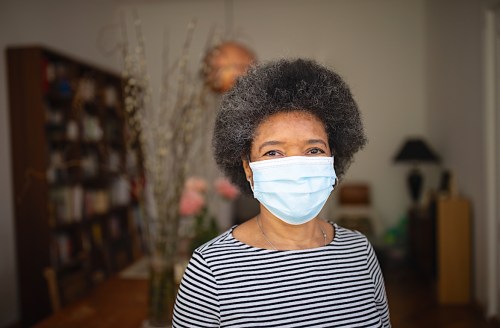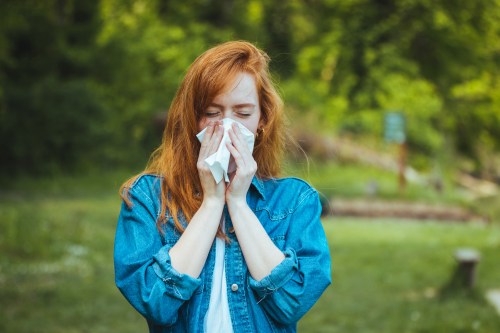Between 2018 and 2019, the flu vaccine prevented an estimated 4.4 million flu illnesses and 3,500 flu-associated deaths. In a year when COVID-19 has taken 215,000 lives in the United States alone, it’s never been more important to make your annual flu shot a priority. In 2020, health-care providers will ask a large number of people to get the “high-dose flu vaccine.” And doctors say that, given the opportunity, people in the most vulnerable populations should absolutely say yes.
Experts in This Article
infectious disease physician at McGovern Medical School at UT Health and UT Physicians
“The high-dose flu shots are relatively new,” says Luis Ostrosky, MD, an infectious disease physician at McGovern Medical School at UT Health and UT Physicians. “They have four times more antigen than the regular flu shot. They usually have the same strains that the regular flu shots have; they just have more antigen to elicit more immune response.”
When Dr. Ostrosky says that the shot has four times more antigen than the original flu shot, he means that the vaccine contains quadruple the amount of the molecule that tells your body’s immune system, “Hey, you’re dealing with the flu here!” That way you can knuckle down and attack the influenza virus more efficiently. “We’re kind of stacking the deck so that the body’s more likely to recognize a virus if it comes in,” says Dr. Ostrosky. “That’s how vaccines work. They’re not a live virus.” In non-medical speak, the high-dose version of the flu shot is basically wearing four name tags instead of just one so that your body has the best chance of recognizing its identity on the spot.
“[High-dose flu vaccines] have four times more antigen than the regular flu shot.” —Luis Ostrosky, MD
In non-pandemic years, high-dose flu shots have been reserved for people 65 years or older because they’re at a higher risk of developing serious complications from the flu. About 90 percent of all flu-related deaths occur among people over the age of 65, according to the Centers for Disease Control and Prevention (CDC). The extra-strong version of the vaccine seeks to not only fill that gap but to keep more folks free of the already-strained hospital system. “People over 65 years of age tend to produce less of an immune response, so the idea is that by giving them more antigen they’re more likely to produce an immune response and in fact they do. People over 65 who get the higher flu shot have 24 percent less likelihood of getting through it than people get back into regular those,” says Dr. Ostrosky.
This year, Dr. Ostrosky says it’s very possible that the health system will stretch its resources to give people hovering around the age of 65 a high-dose version of the vaccine. However, if your local drugstore or doctor’s office doesn’t offer the potent vaccine, Dr. Ostrosky says you should absolutely still ask for the normal shot. “You might be asking yourself, ‘If I go to my doctor or clinic or pharmacy and they don’t have the high-dose flu vaccine, should I get the regular dose if I’m over 65?’ And my answer would be ‘yes.’ If you do not have access to the high-dose flu vaccine, by all means, please get the regular dose because even that will provide protection in all likelihood,” concludes Dr. Ostrosky.
Oh hi! You look like someone who loves free workouts, discounts for cult-fave wellness brands, and exclusive Well+Good content. Sign up for Well+, our online community of wellness insiders, and unlock your rewards instantly.
Sign Up for Our Daily Newsletter
Get all the latest in wellness, trends, food, fitness, beauty, and more delivered right to your inbox.
Got it, you've been added to our email list.











